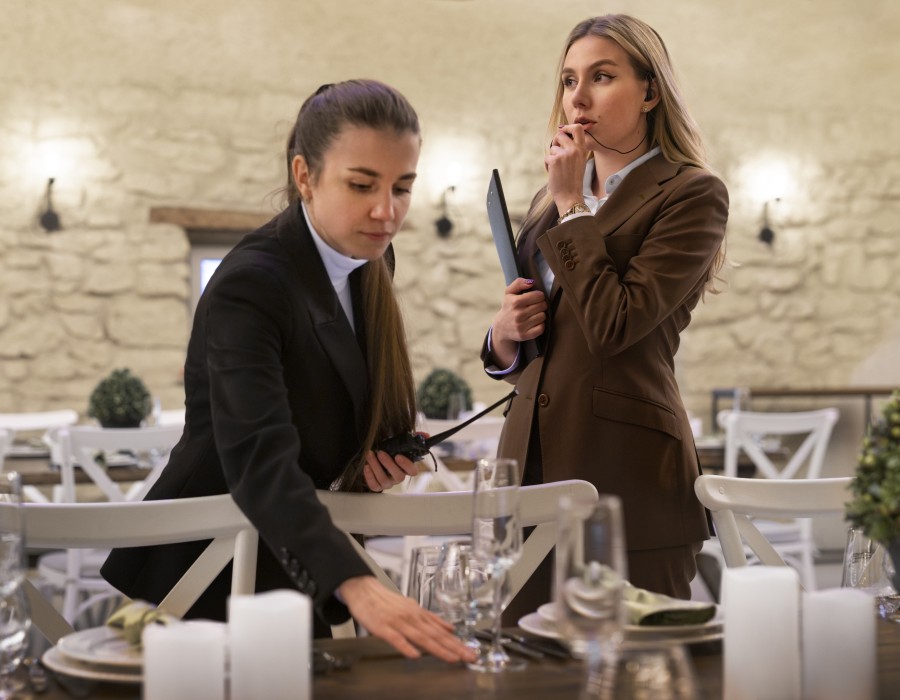Planning and promoting successful restaurant events isn't just about the event itself—it's about creating a memorable experience that gets people talking and coming back for more. In the digital age, the key to making your event stand out is leveraging digital marketing strategies to create buzz before, during, and after the event.
1. Know Your Audience
The first step in planning any successful event is understanding your audience. Who are you trying to attract? Are they foodies, families, professionals, or something else? Understanding your target audience helps you plan an event that resonates with them.
Research Trends: Keep an eye on the latest trends in food and beverages. Are there any new dishes, dietary preferences, or popular dining themes that would excite your audience? Think about hosting a “Farm-to-Table” night, a wine-tasting event, or a themed dinner based on global cuisines. Make it something your audience can’t resist.
Survey Your Guests: Don’t hesitate to ask your customers for input. You can run a quick poll on Instagram stories or send a survey through your email list asking what types of events they would be interested in. This ensures that your event aligns with their preferences and needs.
2. Create a Unique Experience
No one wants to attend a run-of-the-mill event. If you're hosting a special event at your restaurant, make sure it's unique and tailored to your restaurant’s personality. Whether it's a themed dinner, live music, or a cooking class with your chef, the goal is to create an experience that feels exclusive and memorable.
Highlight Your Signature Dishes: Incorporate your restaurant's best dishes into the event, maybe even with special recipes or secret ingredients that guests can’t get anywhere else. This could be the perfect opportunity to showcase your chef’s creativity or launch a new dish.
Offer Limited-Edition Menus: A limited-edition event menu that’s only available on the night of the event gives your guests a sense of urgency and exclusivity. This can encourage early reservations and build anticipation for the event.
3. Leverage Digital Marketing to Spread the Word
In today’s competitive restaurant landscape, using digital marketing is essential to making your event a success. The right promotion can generate excitement and draw in your audience.
Create an Event Page on Your Website: Ensure you have a dedicated event page with all the details your customers need—event description, menu, pricing, reservation link, and event timings. Make sure it’s mobile-friendly and optimised for local SEO to appear in relevant searches like “restaurant events near me.”
Social Media Promotion: Use your restaurant’s social media platforms to create buzz leading up to the event. Tease your audience with sneak peeks, behind-the-scenes shots of event preparation, or highlights from past events. Use eye-catching graphics and videos to grab attention. For even more engagement, encourage your followers to share their own experiences or invite their friends.
Collaborate with Influencers: Partnering with local food influencers can help expand your event’s reach. Influencers can help promote the event by sharing their experience at your restaurant and recommending it to their followers, thus increasing attendance.
Email Marketing: Send out targeted emails to your loyal customers and newsletter subscribers with a special invitation to your event. Make sure the subject line is enticing, and offer exclusive early-bird tickets or discounts to incentivize quick RSVPs.
4. Engage During the Event
Don’t let the excitement stop once the event begins—keep the momentum going during the event itself by actively engaging with your attendees and encouraging them to share their experience.
Live Social Media Updates: Share live updates on Instagram stories, Facebook, or Twitter. Post pictures and videos of guests enjoying their meals, shots of the atmosphere, and highlights from your event. Encourage guests to tag your restaurant in their own posts with event hashtags.
Interactive Elements: Make the event more interactive. This could include cooking demonstrations, trivia about the food being served, or even a raffle where guests can win a free meal. Engagement like this ensures that guests have a memorable experience they’ll talk about.
5. Post-Event Follow-Up
Once the event is over, don’t let it fade into the background. Follow up with your guests to keep the conversation going.
Share Event Highlights: After the event, share photos, videos, and guest testimonials on your social media platforms. Thank your attendees for their support, and encourage them to join you again next time.
Email Recap: Send a thank-you email to all attendees with highlights from the event and a sneak peek at upcoming events. You could also offer a discount on their next meal as a token of appreciation.
Collect Feedback: Use feedback to improve your future events. Send out a short survey or ask guests to leave reviews about their experience. This not only helps you understand what went well but also shows that you value their input.
Conclusion
When it comes to planning and promoting successful restaurant events, it’s all about creating a unique and unforgettable experience while using digital marketing strategies to spread the word. From audience research and event planning to leveraging social media and email campaigns, each step plays a crucial role in ensuring your event gets noticed and attracts the right crowd. By building excitement before, engaging during, and following up after the event, you'll increase customer loyalty and position your restaurant as the go-to place for great dining experiences.





Comments